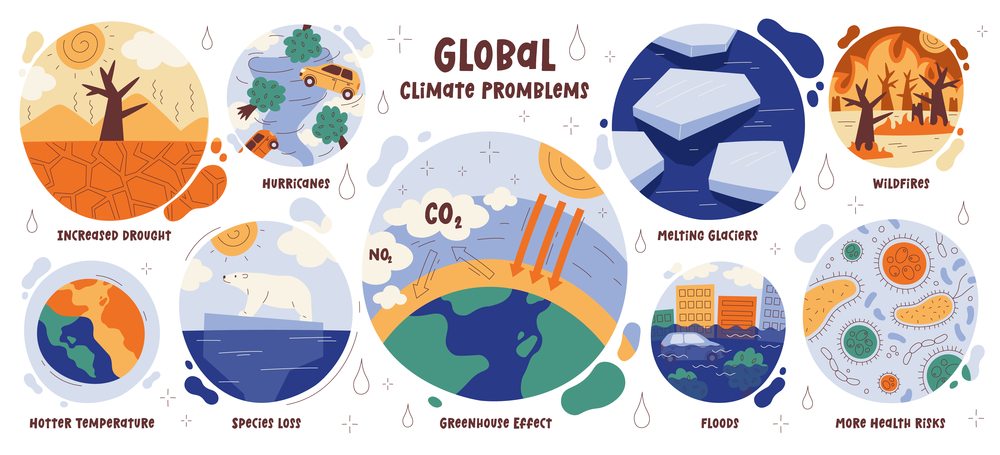Limiting Climate Change Research Harms Public Health

By Annette Pinder
The National Institutes of Health (NIH) decision to terminate funding for studies investigating the health impacts of climate change has led to significant concern among the scientific, medical, and broader public health communities. The policy change marks a significant departure from years of federal commitment to critical research connecting environmental shifts to human health outcomes.
For decades, NIH-backed research has highlighted the many ways climate change — through increased extreme weather, wildfires, and rising global temperatures — directly and indirectly impacts human well-being. This decision will hinder current scientific progress and threaten future innovation and preparedness. Scientists say the NIH’s withdrawal will significantly slow efforts to understand the complex and changing relationship between the planet’s climate and health. Climate change is already shifting disease patterns and worsening both chronic conditions and emergency situations. Shohreh Farzan, an associate professor at the University of Southern California’s Keck School of Medicine, states her work, funded by now-uncertain NIH grants, studies the cardiovascular effects of wildfires and heat on children.
Concrete ties between extreme weather and a variety of health conditions include asthma, heart attacks, strokes, and the onset of mental health disorders. Moreover, studies have shown that firefighters combating wildfires are exposed to hazardous substances such as lead and mercury, and that particulates in smoke can increase the risk of heart disease. The breadth and immediacy of these threats only reinforce the necessity of sustained scientific inquiry.
The repercussions extend well beyond the laboratory. Communities, especially those in regions prone to climate extremes, rely on authoritative research to help prevent the harm caused by environmental hazards. The economic fallout could also be significant, as climate change impacts industries such as agriculture, fisheries, and tourism, which are vital to regional and even national economies. Research is also essential for the progress of renewable energy technologies. The loss of funding not only slows advances in clean energy but also risks prolonging dependence on fossil fuels, thereby deepening the climate crisis.
Researchers now face an uncertain future. Dr. Farzan has yet to receive clear guidance from the NIH, placing essential projects in jeopardy. The potential consequences for research centers are equally troubling. Experts such as Lyndsey Darrow, professor of epidemiology at the University of Nevada, Reno, caution that halting federal funding means the nation risks “flying blind” in the face of growing climate-health threats. Her research, also NIH-funded, has already demonstrated that heat waves increase premature births among at-risk populations, including young women and people of color.
The NIH’s decision to discontinue support for climate change health research threatens to stall progress in scientific understanding, undermine public health preparedness, and weaken the nation’s ability to develop robust solutions to one of the most urgent challenges of our time. Its impact will be felt in the health and resilience of society as a whole.









